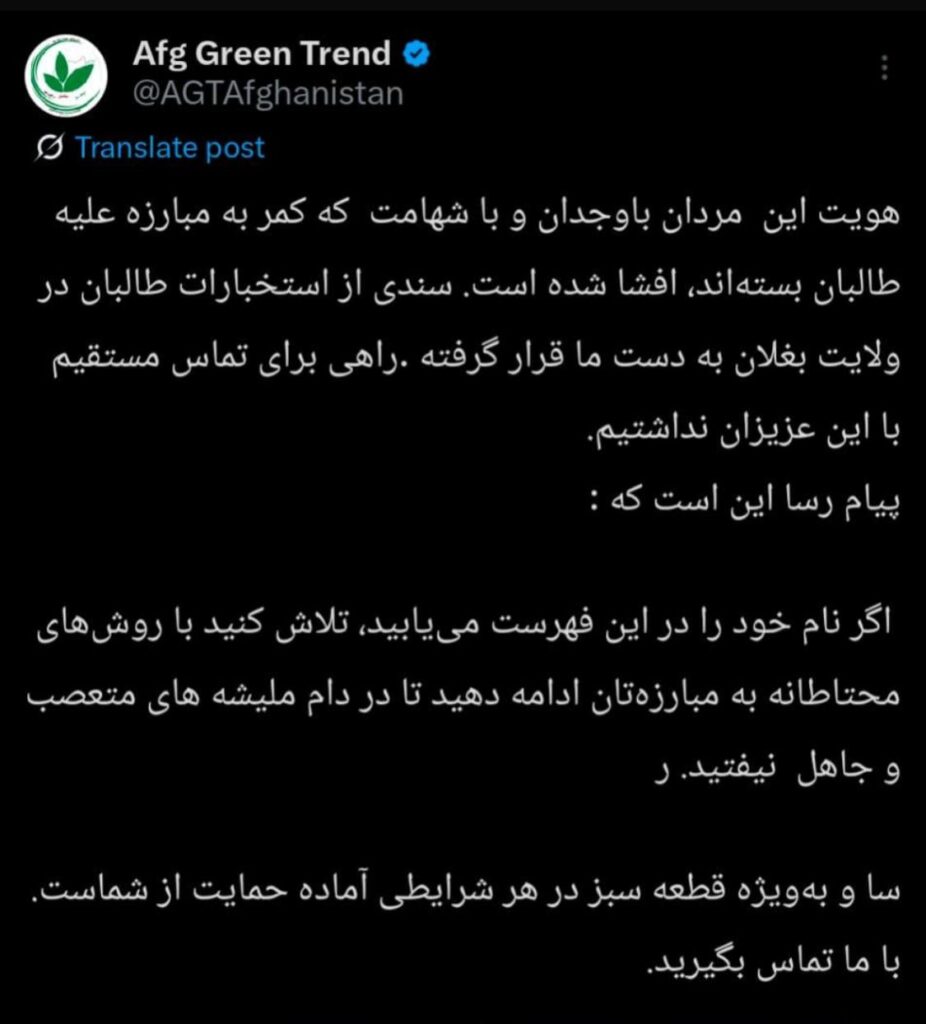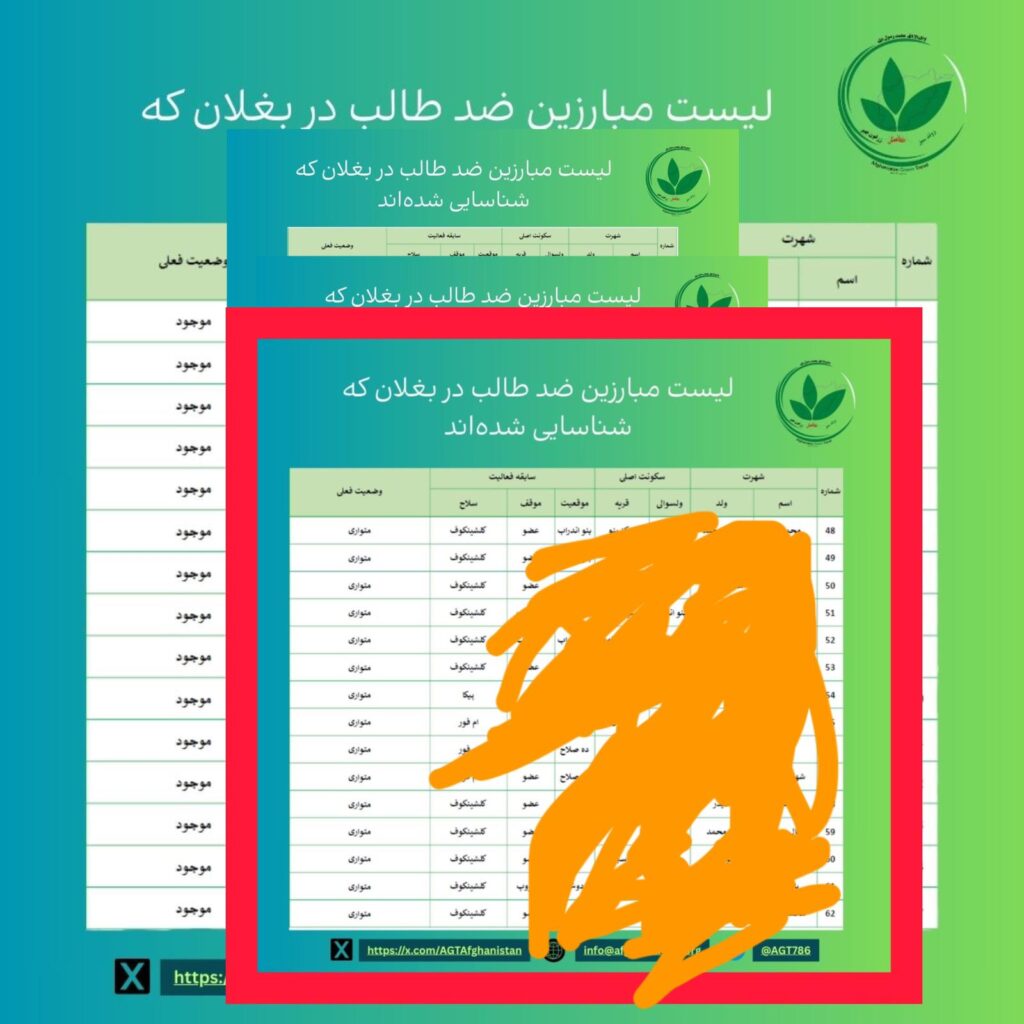
Afghanistan Green Trend, led by Amrullah Saleh, the former vice president, recently published a list of nearly seventy armed opponents of the Taliban with their full names. This post was deleted from the official pages of Green Trend after a few hours, but the reactions and consequences continue.
According to observers, publicly releasing such a list could directly endanger the lives of the individuals named and their families. The Taliban, who had previously been secretly tracking these individuals, can now easily and publicly identify and target them.

Distrust and division within the resistance
A source close to the anti-Taliban fronts told Arg Times:
“This action worked in favor of the enemy. The Taliban had been secretly pursuing these individuals, but Saleh made it public. Now disputes and divisions among the resistance fighters themselves have intensified.”
According to this source, some commanders and resistance forces accuse Saleh of recklessness and believe this move has severely undermined internal trust.
Security analysts warn that the Taliban can use this list as a propaganda tool to show that their opponents have been “exposed” and are vulnerable. This will also negatively affect the morale of the resistance fighters.
Post deletion; retreat or admission of mistake?
Although Green Trend deleted the post after a few hours, this very act showed that the pressure and negative reactions had been widespread. According to experts, deleting the post did not reduce the crisis but instead highlighted weak decision-making and the lack of intelligence cohesion within the resistance leadership.
Amrullah Saleh’s controversial move in publishing the list of 70 Taliban opponents, instead of strengthening the resistance, has effectively endangered the lives of the fighters and fueled internal divisions. This incident is a clear example of the importance of information management in wartime, where a small mistake can lead to major security and political consequences.



